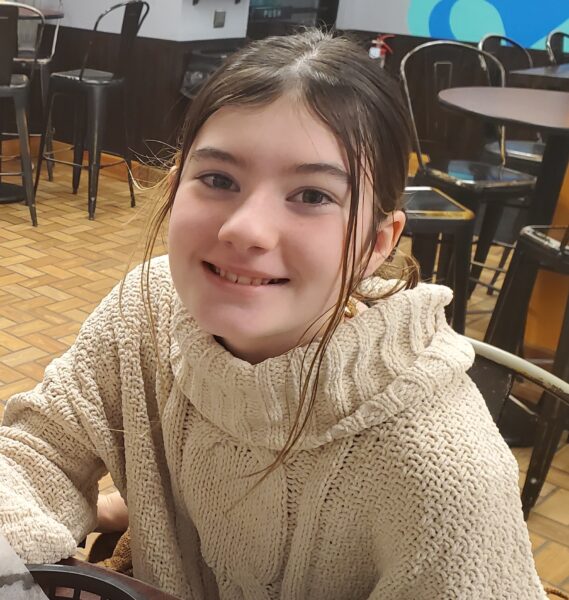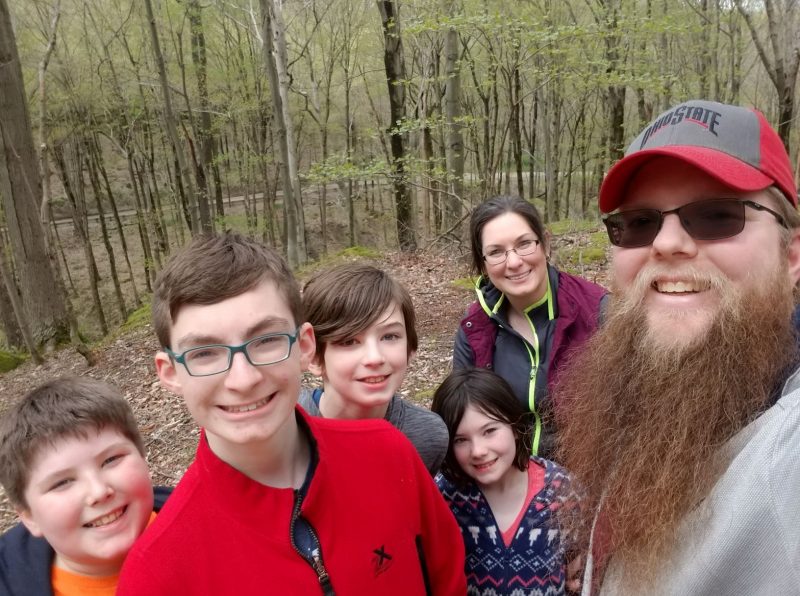For Cohen Pierce, it was triggered by the transition to middle school. For his younger sister Lila, it was most apparent the morning of test days.
The “its” in both cases were mental health concerns.
Cohen’s depression manifested as changes in his personality. He went from his normal happy-go-lucky self to feeling down and negative about life. Lila experienced anxiety that physically presented as stomach aches, particularly when she foresaw a difficult day at school.

Cohen Pierce
“Mental health issues are generational in our family,” said Cohen and Lila’s mother, Bethany. “We’ve always normalized mental health as a regular part of our overall health.
“I’m very thankful that pediatric providers are seeing the need for counseling services for kids.”

Lila Pierce
Siblings experience depression and anxiety
Cohen and Lila, of Galion, Ohio, were both treated by Akron Children’s Mental Health services.
“One thing we’ve always said is ‘If you think you need counseling, you probably do,’” Bethany said.
Cohen struggled with the added responsibilities that middle school meant for him: the new teachers with different expectations, new and different relationships and friendships it involved. In general, he worried about how he would fit in.
Mom didn’t realize the extent of child’s depression
Bethany is thankful Cohen confided in a friend, who in turn talked to his mother about it. Concerned, that mother called Bethany.
“If his friend wouldn’t have spoken up, I wouldn’t have known the extent he was struggling at school.”
Cohen started counseling with Akron Children’s Jennifer Butler, LPCC-S in Mansfield. Jen helped him develop coping skills and worked through specific issues he was facing during the transition to middle school.

The Pierce family of Galion are advocates for pediatric mental health. Two of their children have used the resources at Akron Children’s Mansfield health center.
Bethany said it can be hard for parents to spot mental health concerns in their children unless they are being proactive, inquisitive and keep an open communication line with them.
“We’re so busy running our children around trying to make their lives the best they can be, and in the course of that busy-ness we’re often overlooking the child themselves,” she said. “As parents, we’re thinking that by providing kids with all these opportunities that they should be happy; they should be doing great. We’re seeing the outside, but we might be missing what’s going on inside.”
How do we see the inside? How do we get to know how they’re really doing?
The value of a car-ride conversation
“I’ve found the best place to do that is in the car, when they’re stuck with me,” she said. “We just need to try and get to know our kids and see them for who they are, so when they ARE struggling we notice it.”
And then ask for help when they need it.
Cohen reached his counselor’s goals within 6 months and was actually a little sad when he didn’t have to go back, his mother said. Lila’s anxiety is more generalized and she is still receiving care.
“We have to understand that the brain has so many functions that if it’s not firing properly it’s going to affect other parts of our health and lives,” Bethany said. “It’s so important for parents to look at the brain as another part of the body that needs to be properly taken care of.”
Akron Children’s offers a range of comprehensive behavioral health services through its Lois and John Orr Family Behavioral Health Center. Talk to your child’s pediatrician as a first step toward receiving care.
Update
Since this story originally ran in November of 2020, both children have improved.
“Cohen has really worked to overcome his depression and anxiety and had a much easier time when he transitioned into high school versus middle school,” said Bethany. “He has become more courageous in trying new things and is involved in several activities in and outside of school.”
Lila has made strides as well.
“Lila still deals with some anxiety and is homeschooling this school year, but is thinking of heading back to in-person learning in the fall. She is involved in activities that she enjoys, and has a great group of friends who she keeps in touch with through church and sports.”
Mom’s best advice
Bethany offer encouragement and insight for all parents as they work to help their children navigate adolescence.
“What I want to share is that I hope parents understand that their child’s mental health is ongoing and ever-changing, just like their physical health,” she says. “It’s okay to utilize counselors and mental health resources as needed. Right now we are not actively in counseling, but it is always an option as the kids’ face new challenges and struggles in their lives.”










